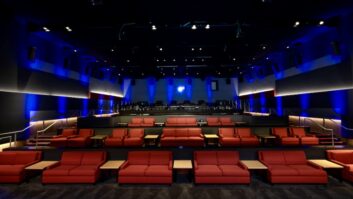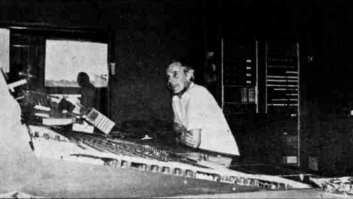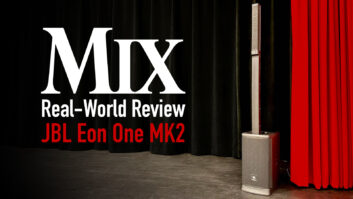I regularly come across tech, music and general info that I immediately put in my “remember this” folder. Recently, I hit the Mother Lode and thought I’d pass it along. Number one of my Five Things You Need to Know should be filed under general interest and surprising facts. It is the incredible musical talent pool in Columbia, Tenn. Wha? I know! But you have to be around this area to understand the phenomenon. For example, if you drive 40 or more miles from downtown L.A. (except west), you are still in the sprawling metropolis with similar retail, housing, freeways, chain food and more. But in Tennessee, soon after you leave Nashville, Memphis or Chattanooga, you’re in a city with a population well under 100k, and this is where the magic happens. For instance, before they moved to Nashville and became Kings of Leon, the Followill brothers lived in Jackson, Tenn. (population 67,265), ace fiddler Andy Leftwich is from White House (10,752), 11-year-old prodigy Carson Peters is from Piney Top (7,229), and bluegrass singer/guitarist/mandolinist Sierra Hull is from Byrdstown (803). What’s in the water?
I learned all this from longtime friend and Columbia (35,558) resident Rick Clark, whom I met years ago when he was Mix’s Nashville editor, among other gigs. Rick has worked as an all-star music producer/supervisor for filmies Cameron Crowe, and Jason Reitman, the TV show Hell On Wheels, Oxford American magazine and too much more to mention. He introduced me to The Sprigs, comprising Matt Johnson and Chris Thomason, American Idol finalist Austin Jones, guitarist/writer Chris Weninegar, and an incredible tenor/guitarist Damien Boggs, all from Muletown. Yup, Columbia is the “Mule capital of the world,” along with being the birthplace of the 11th U.S. president, James Polk.
We worked two days straight with the boys from Columbia, and it was a treat. The level of writing, performance, musicianship and gentility is some of the best I’ve experienced. On October 1, if you’re in the area, you should check out the talent at the Muletown Musicfest on the square in Columbia.
Number Two on my list has nothing to do with music but everything to do with studio culture: coffee. I used to suck as a coffee maker, but not anymore. I’m the king of the French press, which is the perfect tool for small and fresh studio coffee runs. My “trainer” was Chris Weninegar, because four of the five Columbians either own, or work for, Muletown Coffee, a batch roasting house and shop that supplies local Nashville eateries like Puckett’s Grocery. This juxtaposition of music and coffee chops is what I call “the bonus round.”
Chris says that coarse-ground—about the size of the font on a dime—is best for a French press. The proper water-to-coffee ratio according to the Specialty Coffee Association of America is roughly 18.5:1. Another way of saying that is roughly two tablespoons of coffee per six ounces of water, so for a 32-ounce French press you would need ten tablespoons of coffee (this is critical). Boil filtered water to between 195 and 205 degrees and put half into the French press to allow the coffee to bloom, or de-gas. After two minutes, add the rest of the water and stir three times. Finally, at four minutes, gently plunge the coffee, pour it into the cup and let it cool to about 140 to 150 degrees, the perfect drinking temp. Bon appétit, y’all.
Number Three is one of the best and most affordable data backup tools I’ve found. I use Google Drive and Apple’s iCloud Drive and am always frustrated by Google’s dual personality as a true second backup or synched cloud drive, and I can only fully share files with others who have a Gmail account. Backblaze offers unlimited, continuous backup that runs in the background for $50 a year or $95 for two years. I’ve been using it for a few months now, and it works great—invisible and elegant. You can choose what you want to back up on multiple drives, and compared to what I’d pay for 10TB at Google ($99 a month), it’s a bargain. I’ll still use Google and iCloud for other gigs, but for my main confidence backup, I’m going with Backblaze.
Fourth on the list is a secure, online collaboration tool called Armored Info, a Texas-based active cyber defense company. It’s not just for music. AI explains: “The platform consists of The Vault, where files are securely stored, and collaboration between parties is handled, as well as the AI Marketplace, where content creators can then post their work for promotional use or monetary gain.” Read my column from Mix’s April issue about Pro Tools 12.5 if this doesn’t sound familiar. The AI platform can handle a number of file types, and invited members can be part of the project’s creation team. A Bronze level membership is free with 3GB of storage and 500MB file limit, Silver ($9.99, 100GB/5GB), and Gold ($39.99, 500GB/10GB).
Last on the list is my baby, the Foundation Series I’ve been working on for Hal Leonard Publishing via Pensado’s Strive umbrella. It is live now at Groove3.com. Check it out. The series is high-end production terms, techniques and gear aimed at novices and up, all centered around the workflow at Blackbird Studios in Nashville. Know a fifth grader who loves recording and music? It’s targeted, but not limited to a younger crowd. The videos pull back the curtain to see session production at Blackbird. They will love it.







